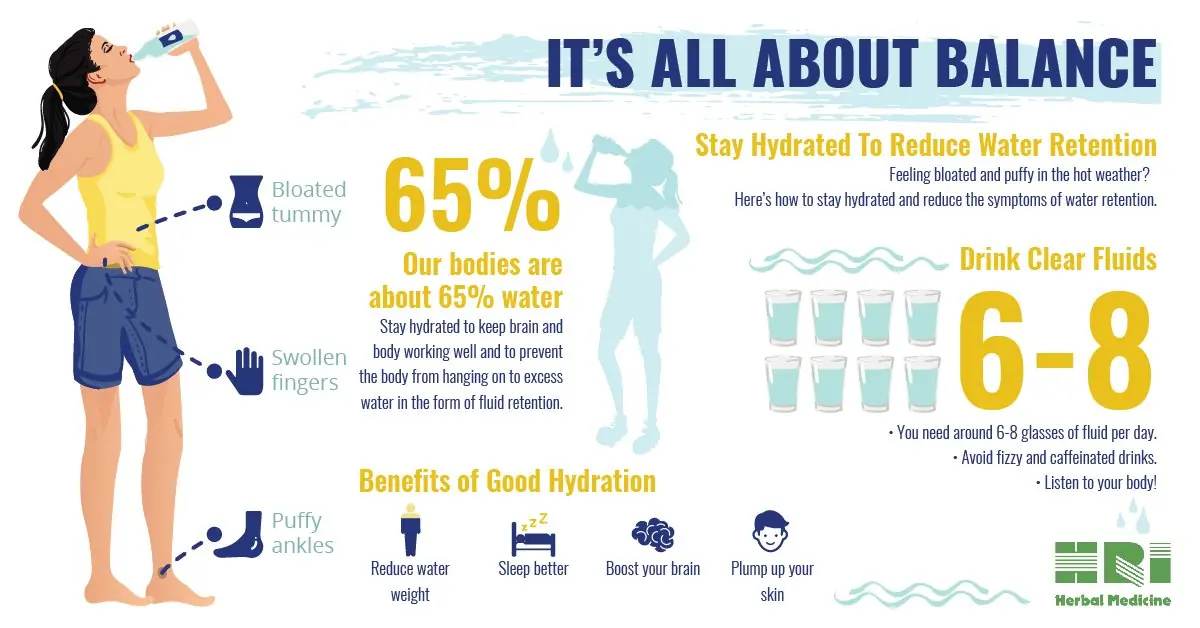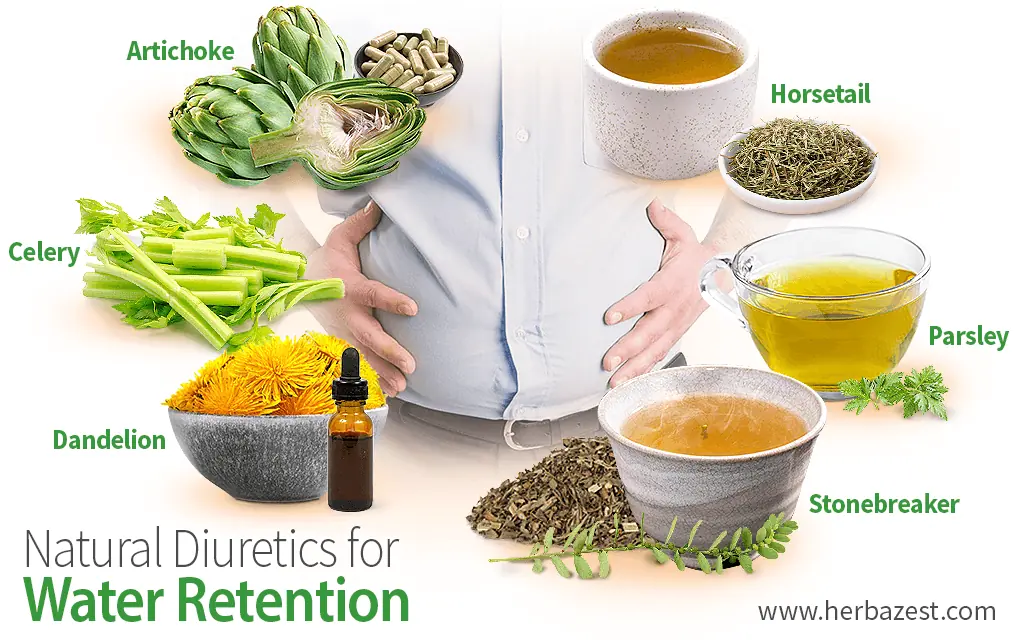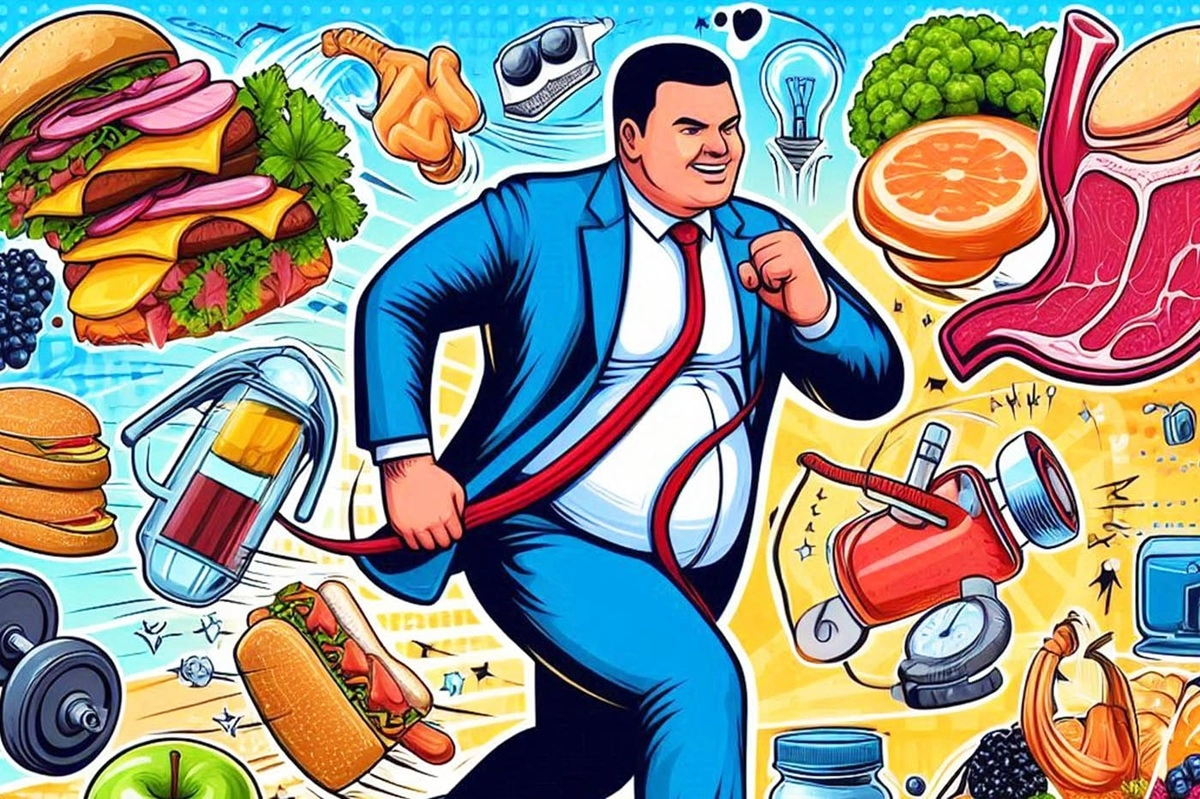Just like Arnold discovered that his competition weight fluctuated before stepping on stage, you’ll notice that your body weight can shift dramatically due to water retention.
When you’re holding onto excess fluid, you might feel bloated, see visible swelling, and watch the scale climb several pounds overnight.
While temporary water weight gain isn’t harmful, understanding its triggers and solutions will help you maintain a more consistent physique and feel your best.
What Is Water Weight?
While your body naturally consists of 50-60% water, water weight refers to any excess fluid that your body temporarily retains beyond its normal levels.
This additional fluid retention, also known as edema, can make you feel bloated and heavier than usual.
Your body’s water weight fluctuates daily based on several factors, including your sodium intake and overall hydration levels.
When you’re retaining excess water, you might notice swelling in your ankles, wrists, or face.
You’ll also see the numbers on your scale increase, even though you haven’t gained actual fat mass.
Understanding water weight is essential because it’s different from fat gain.
While fat gain is a longer-term change in body composition, fluid retention is typically temporary and can be managed through lifestyle adjustments.
Ways To Lose Water Weight
If you’re looking to shed water weight quickly and naturally, you’ll be glad to know there are several proven methods at your disposal.
Whether it’s cutting back on sodium, staying hydrated, reducing carbs, taking specific supplements, or getting your heart rate up through exercise, you’ve got multiple strategies to choose from.
You’ll find that combining these approaches can create a thorough plan that helps your body release excess water while maintaining good health.
1. Reduce Sodium (Salt) Intake
Reducing your sodium intake stands as one of the most effective ways to shed water weight quickly. When you consume too much sodium, your body retains water to maintain proper balance.
You’ll want to replace sodium-rich foods with low-sodium equivalents to combat water retention.
While table salt is an obvious culprit, it’s important to know that 70% of sodium lurks in processed foods like cheese, cold meats, bread, and frozen meals.
Instead, focus on natural foods that are naturally low in sodium, such as vegetables, nuts, and seeds.
Some foods, including bananas, avocados, and leafy greens, can actually help reduce your sodium levels.
Try to keep your daily sodium intake under 2,300 mg – that’s considerably less than the 3,400 mg average Americans typically consume.
2. Drink More Water

Credit: https://hriherbalmedicine.co.uk/
It may seem counterintuitive, but drinking more water actually helps your body release excess water weight.
When you’re dehydrated, your body holds onto extra water as a protective mechanism, leading to temporary bloating and puffiness.
By maintaining proper hydration levels, you’ll improve your kidney function, allowing your body to efficiently flush out excess water and sodium.
The dietary guidelines for Americans recommend about 2 liters of water daily for ideal health and weight management.
You can boost your water intake by:
- Replacing sugary drinks with plain water
- Setting reminders to drink throughout the day
- Keeping a reusable water bottle with you
- Starting each morning with a glass of water
3. Reduce Carbohydrate Intake
Along with proper hydration, your carbohydrate intake plays a major role in managing water weight. When you consume carbs, your body stores unused energy as glycogen, with each gram holding onto 3 grams of water.
While adults need at least 130 grams of carbohydrates daily, most Americans consume far more than necessary.
To reduce water weight effectively, consider cutting back on common carbs like bread, pasta, and rice. Instead, replace these with high-protein foods such as lean meats, eggs, and soy products.
This strategy helps minimize glycogen storage and its associated water retention. You’ll notice that when you reduce your carb intake, your body uses up its glycogen stores, leading to a decrease in water weight.
Just remember to maintain a healthy minimum carb intake for proper bodily function.
4. Supplements
Natural supplements can play a valuable role in managing water weight, particularly vitamin B-6 and calcium.
These supplements work with your kidneys as natural diuretics, helping your body eliminate excess water and sodium more effectively.
If you’re dealing with fluid retention, especially during PMS, these supplements can provide significant relief.
They’re proven to help reduce common symptoms like abdominal bloating, leg swelling, and breast tenderness.
However, it’s essential to approach supplementation with caution.
Before you start taking any supplements for water retention, consult your doctor first.
They’ll evaluate if these supplements are right for you, as they may interact with medications you’re currently taking or cause unwanted side effects.
Your doctor can also recommend the proper dosage for your specific needs.
5. Exercise
Regular exercise delivers a powerful one-two punch against water weight through increased sweating and improved circulation.
When you work out, your body naturally releases excess water through perspiration while simultaneously enhancing blood flow throughout your system.
This improved circulation helps reduce swollen extremities, particularly in your legs and feet. Exercise also burns through your body’s glycogen stores during energy expenditure, which leads to additional water weight reduction.
However, you’ll need to maintain proper hydration levels after your workout to prevent dehydration.
The key is finding the right balance – you want to shed excess water while keeping your body properly hydrated.
Consider activities like cardio, resistance training, or even a brisk walk to get your circulation going and help manage water retention naturally.
6. Water Pills
Prescription water pills offer a medical solution for managing excess fluid retention when used under proper supervision.
These diuretics work by increasing your urination frequency, helping your body eliminate excess water and sodium more effectively.
While water pills can be beneficial for certain health conditions, they aren’t meant for casual or long-term use.
You’ll need to follow your doctor’s instructions carefully to avoid complications like dehydration or mineral imbalances.
They’re specifically designed for medical purposes, not as a quick fix for temporary bloating or weight loss goals.
Remember that water pills are a medical treatment, not a substitute for healthy lifestyle changes.
If you’re experiencing persistent fluid retention, it’s crucial to consult your healthcare provider before considering any medication-based solutions.
7. Support Fluid Balance With Electrolytes
While medical interventions like water pills can help with fluid retention, maintaining proper electrolyte balance offers a more sustainable approach to managing water weight.
Your body relies on electrolytes to regulate fluid balance, and when these minerals are properly balanced, they can help reduce bloating and water retention.
You can support healthy electrolyte levels by incorporating potassium-rich foods like bananas, sweet potatoes, and avocados into your diet.
Adding magnesium sources such as almonds and whole grains will also help optimize your fluid balance.
If you’re exercising intensely, consider an electrolyte drink to replenish lost minerals.
Before starting any supplement regimen, including magnesium oxide or electrolyte powders, consult with your healthcare professional, especially if you have underlying conditions.
Focus on getting your electrolytes through whole foods whenever possible.
8. Improve Sleep Quality
Getting quality sleep plays an essential role in managing water weight, since poor rest disrupts the hormones that regulate fluid balance in your body.
When you don’t get enough restful sleep, you’re more likely to experience increased inflammation and unwanted cravings for salty, carb-heavy foods.
To optimize your sleep schedule and support healthy hydration:
- Maintain consistent bedtime and wake-up times
- Create a dark, cool bedroom environment
- Turn off screens one hour before bed
- Skip caffeine and heavy meals in the evening
- Practice relaxation techniques like reading or deep breathing
Aim for seven to nine hours of quality sleep nightly.
Your body needs this time to regulate fluids properly and reduce inflammation. Just as Arnold always emphasized recovery, prioritizing sleep is essential for managing water retention and overall wellness.
9. Eat A Nutrient-Dense Diet
To effectively manage water weight, you’ll need to focus on consuming nutrient-dense whole foods that support your body’s natural fluid balance.
By incorporating specific foods into your diet, you can naturally reduce bloating and water retention while maintaining peak hydration levels.
Focus on these powerful food groups:
- Dark leafy greens like spinach and kale, which are rich in minerals
- Potassium-packed fruits, especially bananas and berries
- Fiber-rich whole grains, including oats and brown rice
- High-quality lean proteins such as fish, eggs, and tofu
- Nuts, seeds, and legumes for healthy fats and protein
Remember to maintain consistent portions throughout the day and pair these nutrient-dense foods with adequate water intake.
This approach helps your body regulate fluid levels more effectively while providing essential nutrients for overall health.
10. Use Natural Diuretics Cautiously

Natural diuretics can be powerful allies in managing water weight, but they require careful consideration and proper usage.
While these natural remedies can help reduce water retention, you’ll want to approach them mindfully to avoid dehydration or mineral imbalances.
Several common natural diuretics you can incorporate into your routine include herbal teas made from dandelion, hibiscus, or nettle.
You’ll also find diuretic properties in everyday items like coffee, parsley, and fennel. These can increase your urine output and help shed excess water weight.
Before starting any natural diuretic regimen, consult your healthcare provider, especially if you’re taking medications. It’s essential to maintain proper electrolyte balance while using these remedies.
Remember to stay hydrated and monitor how your body responds to these natural alternatives.
11. Manage Stress Levels
While many people focus on diet and exercise to manage water weight, stress levels play an essential role in how your body retains fluid. When you’re stressed, cortisol levels spike, triggering hormonal changes that can make your body hold onto water and intensify cravings for salty, carb-heavy foods.
To combat stress-induced water retention, you’ll need an effective stress management strategy. Consider these proven techniques:
- Practice deep breathing or meditation daily
- Engage in regular physical activity
- Spend time outdoors in nature
- Take up journaling or creative hobbies
- Reduce your caffeine and alcohol intake
Even small changes in how you handle daily stress can greatly impact your body’s water retention patterns.
By implementing these strategies consistently, you’ll not only reduce bloating but also improve your overall health and wellness.
12. Skip Artificial Sweeteners
Artificial sweeteners may seem like a smart way to cut calories, but they’re actually working against your efforts to reduce water weight.
Many artificial sweeteners, particularly sugar alcohols, can trigger water retention and abdominal bloating as they ferment in your digestive system.
To avoid this health condition, watch out for ingredients like sorbitol, xylitol, maltitol, and erythritol in your foods and beverages.
These sugar alcohols are notorious for causing digestive issues and fluid retention.
Instead, opt for natural sweeteners that your body can process more efficiently. Try using small amounts of honey, maple syrup, stevia, or monk fruit to satisfy your sweet tooth.
These alternatives won’t contribute to excess water weight and are gentler on your digestive system, helping you maintain a leaner, less bloated appearance.
13. Try Compression and Elevation
Managing water weight goes beyond dietary changes – physical interventions can make a significant difference too.
If you’re dealing with swelling in your legs or feet, compression garments are an effective solution. These specialized garments help improve circulation and reduce fluid buildup throughout your day.
Another powerful technique is elevating your legs above heart level. You’ll want to do this several times daily, especially after long periods of sitting or standing.
Find a comfortable spot where you can lie down and prop your legs up on pillows or against a wall. This position naturally helps drain excess fluid from your lower extremities.
For peak results, combine both methods – wear compression garments during your daily activities and practice elevation during rest periods.
These simple but effective strategies work together to minimize water retention.
Risk Factors
Although fluid retention can affect anyone, certain health conditions and lifestyle factors greatly increase your risk of experiencing water weight gain.
If you’re pregnant, taking contraceptive pills, or dealing with a hormonal imbalance, you’re more likely to retain water.
Medical conditions like heart failure and kidney problems can profoundly impact your body’s ability to regulate fluid balance.
Similarly, if you’re taking corticosteroids or following a sedentary lifestyle, you might notice increased fluid retention.
Your diet plays an essential role, too. Malnutrition can lead to water weight gain, as your body tries to compensate for nutritional deficiencies.
Common Causes Of Water Weight (Retention)
Water retention occurs through several common pathways that affect your body’s fluid balance.
Your food choices play a significant role – high sodium and carb intake can cause your body to hold onto extra water, while lacking potassium and magnesium may worsen retention.
For women, the menstrual cycle naturally triggers water retention due to hormonal changes, especially in the week before menstruation.
Physical inactivity, like sitting for long periods, can disrupt proper fluid circulation and cause swelling in your extremities.
Certain medical conditions, particularly heart or kidney disease, can interfere with blood flow and lead to fluid buildup.
Additionally, some medications, including anti-inflammatory drugs and oral contraceptives, list water retention as a common side effect.
If you’re concerned about medication-related water weight, consult your doctor.
Prevention
To prevent unwanted water retention, you’ll need a thorough strategy targeting diet, exercise, and lifestyle factors.
Following a low-sodium diet while maintaining proper hydration is essential for managing water weight effectively.
Make exercise a priority by dedicating 2.5 hours weekly to physical activity. Regular movement helps prevent fluid buildup and promotes natural water balance in your body.
Remember to stay hydrated during workouts to support proper fluid regulation.
For women experiencing menstruation-related fluid retention, incorporating dietary supplements can make a significant difference.
Focus on essential nutrients like iron, calcium, and vitamin D to help minimize monthly water weight fluctuations.
Create a consistent supplement routine that aligns with your cycle for ideal results.
Post-Cut Recovery
Drink small amounts of water every 15 minutes. This helps your body absorb water better. Use electrolyte solutions to replace lost salts. Avoid sugary drinks. They can cause more water loss.
Eat foods rich in potassium, like bananas and sweet potatoes. Potassium helps balance fluids. Include lean proteins like chicken and fish. They repair muscles. Whole grains provide energy. Add vegetables for vitamins and minerals.
To Wrap It All Up
Like a sponge that’s been wrung out, you’ll feel lighter and more energized once you understand how to manage water weight.
By making simple lifestyle changes – controlling sodium, staying hydrated, exercising regularly, and getting quality sleep – you’re taking control of fluid retention.
Remember that water weight fluctuations are normal, but with these prevention strategies, you can minimize their impact and maintain a more consistent, comfortable body composition.
FAQs
1. How To Do A Water Cut In Bodybuilding?
Do a water cut in bodybuilding by increasing water intake 7–10 days before competition, then sharply reducing it 24–48 hours before stage time. Reduce sodium, use clean carbs to manage glycogen, and time water restriction carefully. Always monitor health, as extreme dehydration can be dangerous.
2. What Do Bodybuilders Use To Lose Water Weight?
Bodybuilders lose water weight by manipulating water and sodium intake, adding natural diuretics like dandelion root or caffeine, and using sweat-inducing methods such as cardio or saunas. Some may use prescription diuretics, but these carry serious health risks and are often banned in competition.
3. How Long Do Bodybuilders Cut Water?
Bodybuilders typically cut water for 24–72 hours before a show. The exact length depends on body size, condition, and response to dehydration. Extended water cuts beyond three days are unsafe and can impair performance, electrolyte balance, and health.
4. How To Cut 10 Pounds Of Water Weight?
Cut 10 pounds of water weight by combining water loading, sodium restriction, increased sweating, and carb manipulation. Athletes drink excess water early in the week, then sharply reduce intake. Paired with low sodium and cardio, this method can drop 8–12 pounds in a few days.
5. How Long Does It Take to Lose Water Weight?
You can lose noticeable water weight in 24–72 hours through diet and hydration changes. Cutting carbs and sodium speeds the process because glycogen binds water. Long-term water balance stabilizes within a week once normal eating and drinking resume.
6. Do Saunas and Sweating Help Lose Water Weight?
Yes, saunas and sweating help lose water weight by reducing fluid through perspiration. A 30-minute sauna session can result in 1–2 pounds of temporary loss. However, the effect is short-lived, and weight returns once fluids are replaced.
7. What Is The Best Supplements for Reducing Water Retention?
The best supplements for reducing water retention are natural diuretics like dandelion root, caffeine, and green tea extract. Magnesium and potassium also support fluid balance. These options help flush excess water safely compared to prescription diuretics, which carry risks.











